Do SCUBA divers impact reef manta ray (Mobula alfredi) behaviour at cleaning stations? An analysis of diver and manta interactions in the Maldives
2018
Nicole Pelletier (MSc Marine Environmental Management - University of York)
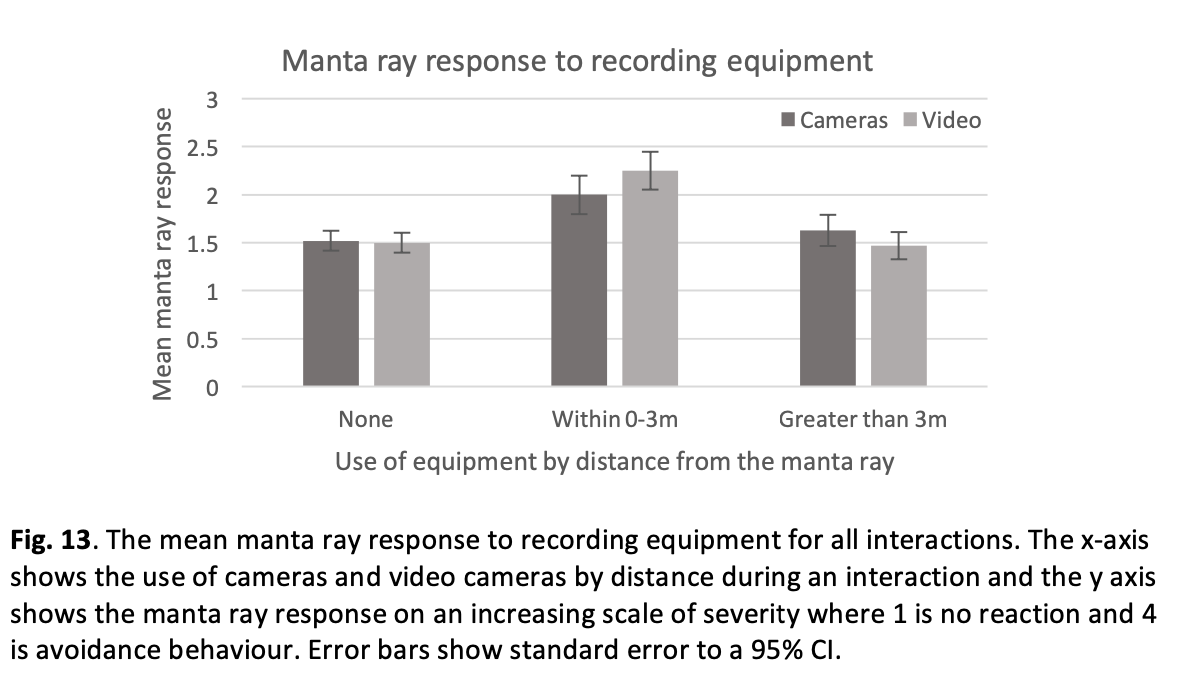
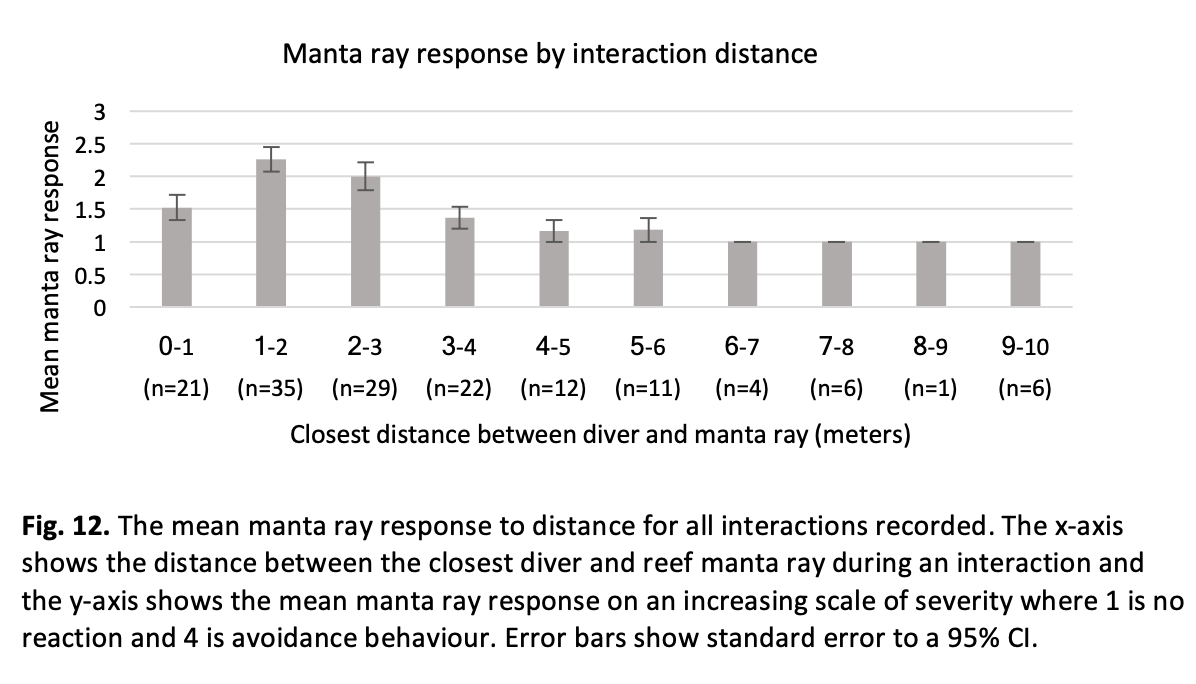
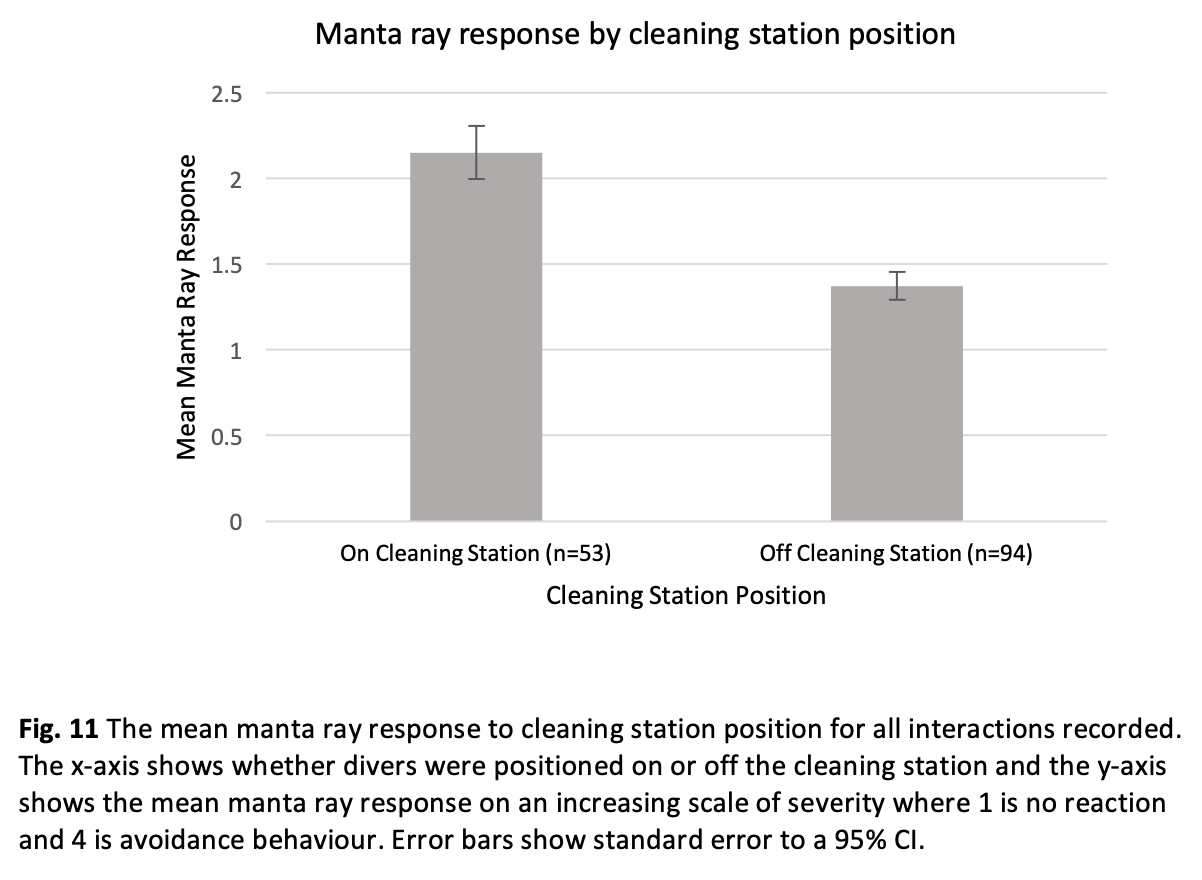
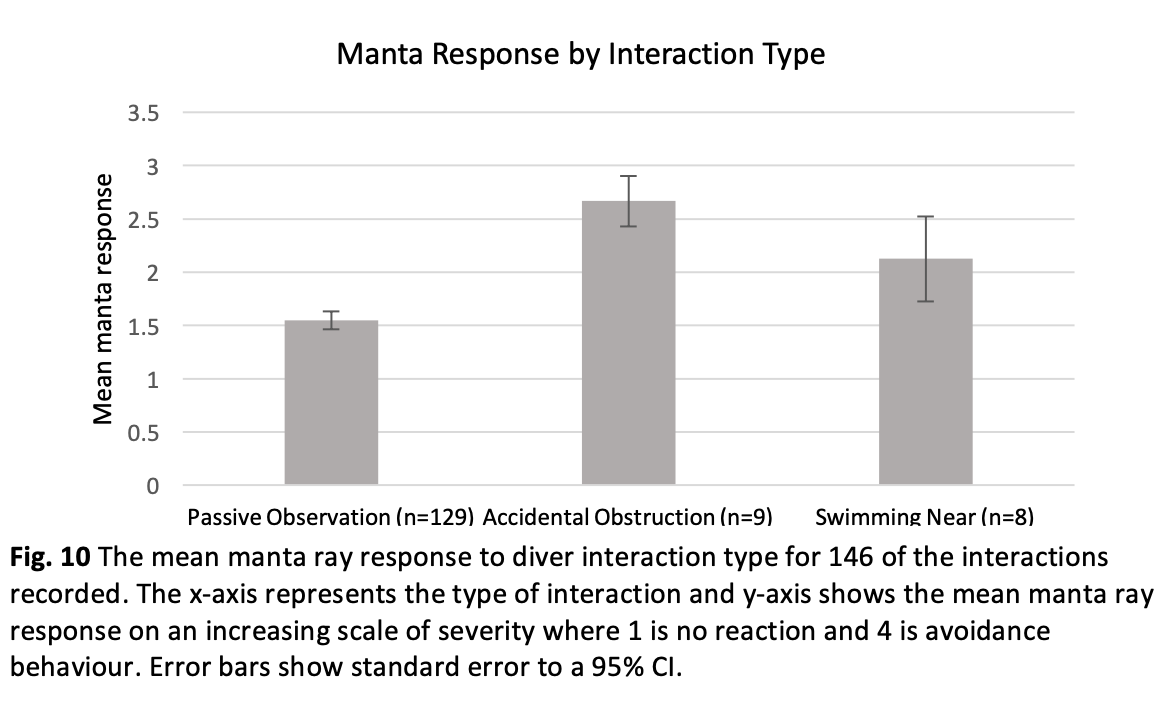
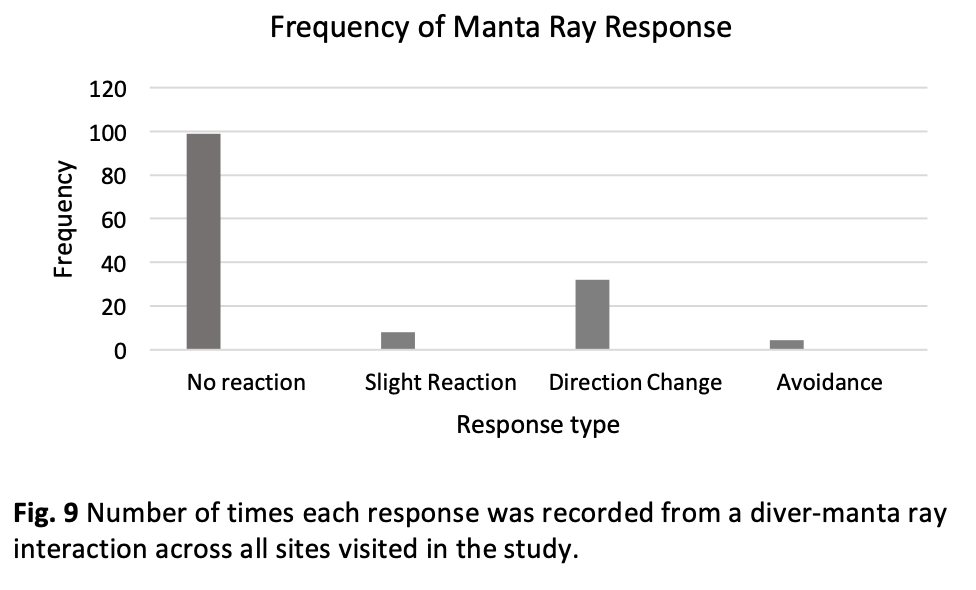
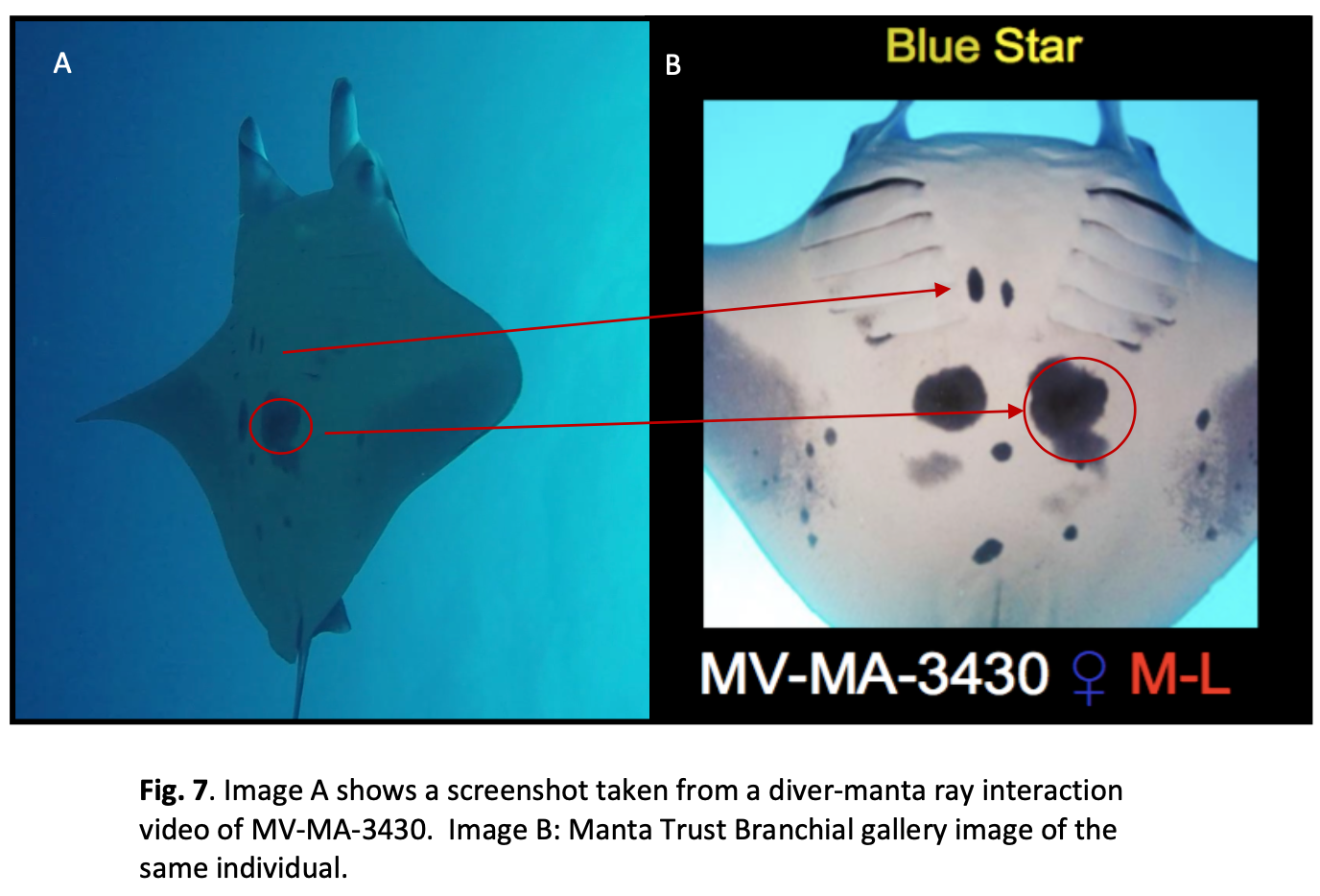
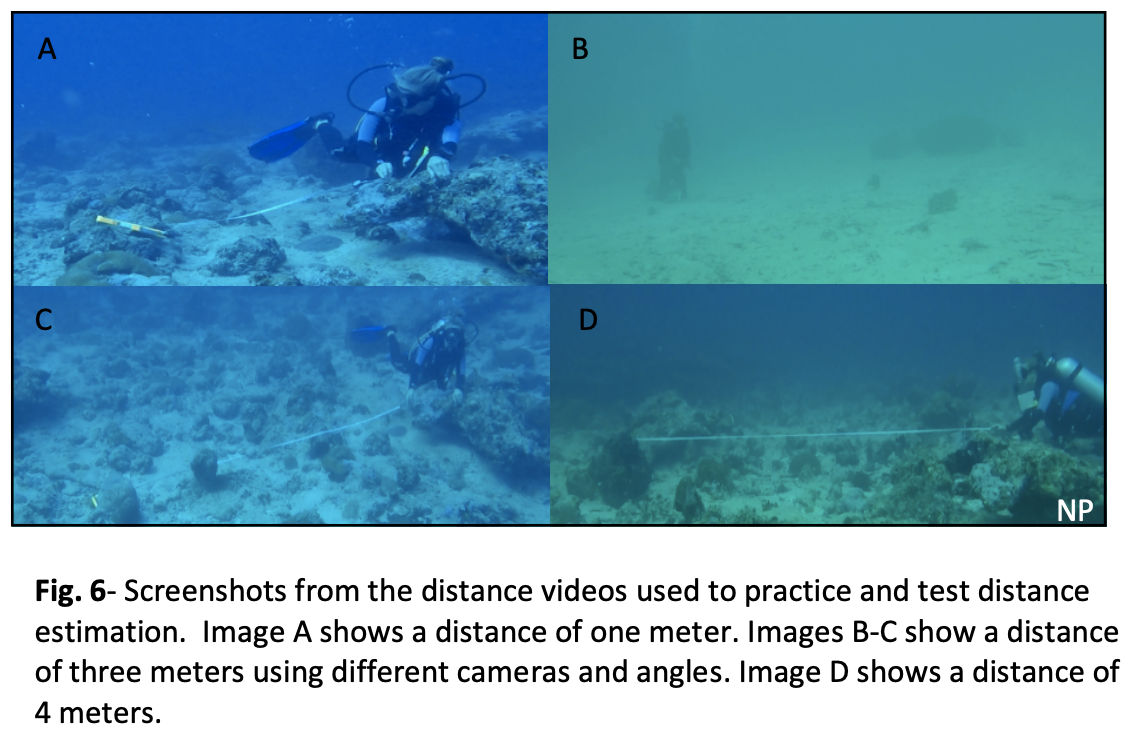
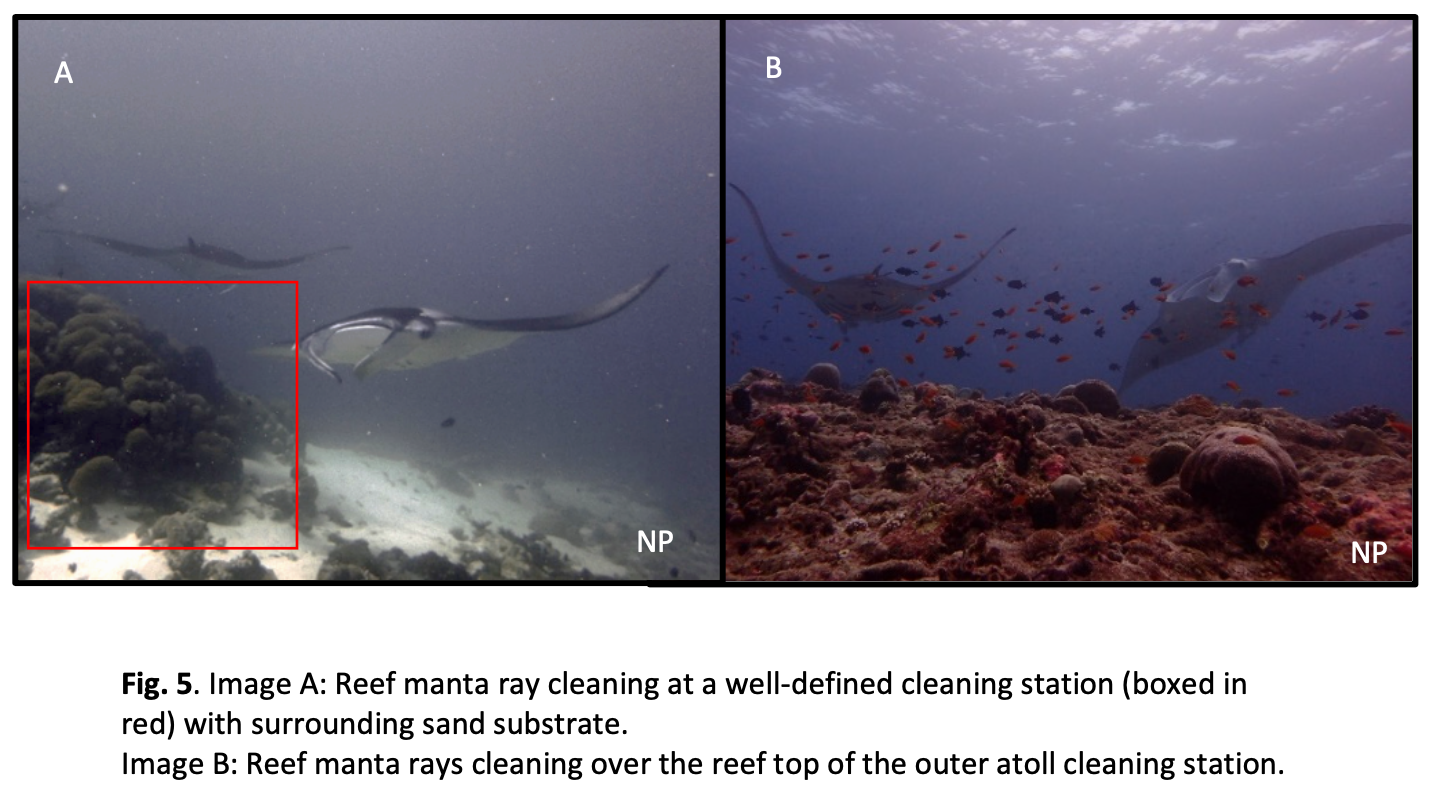
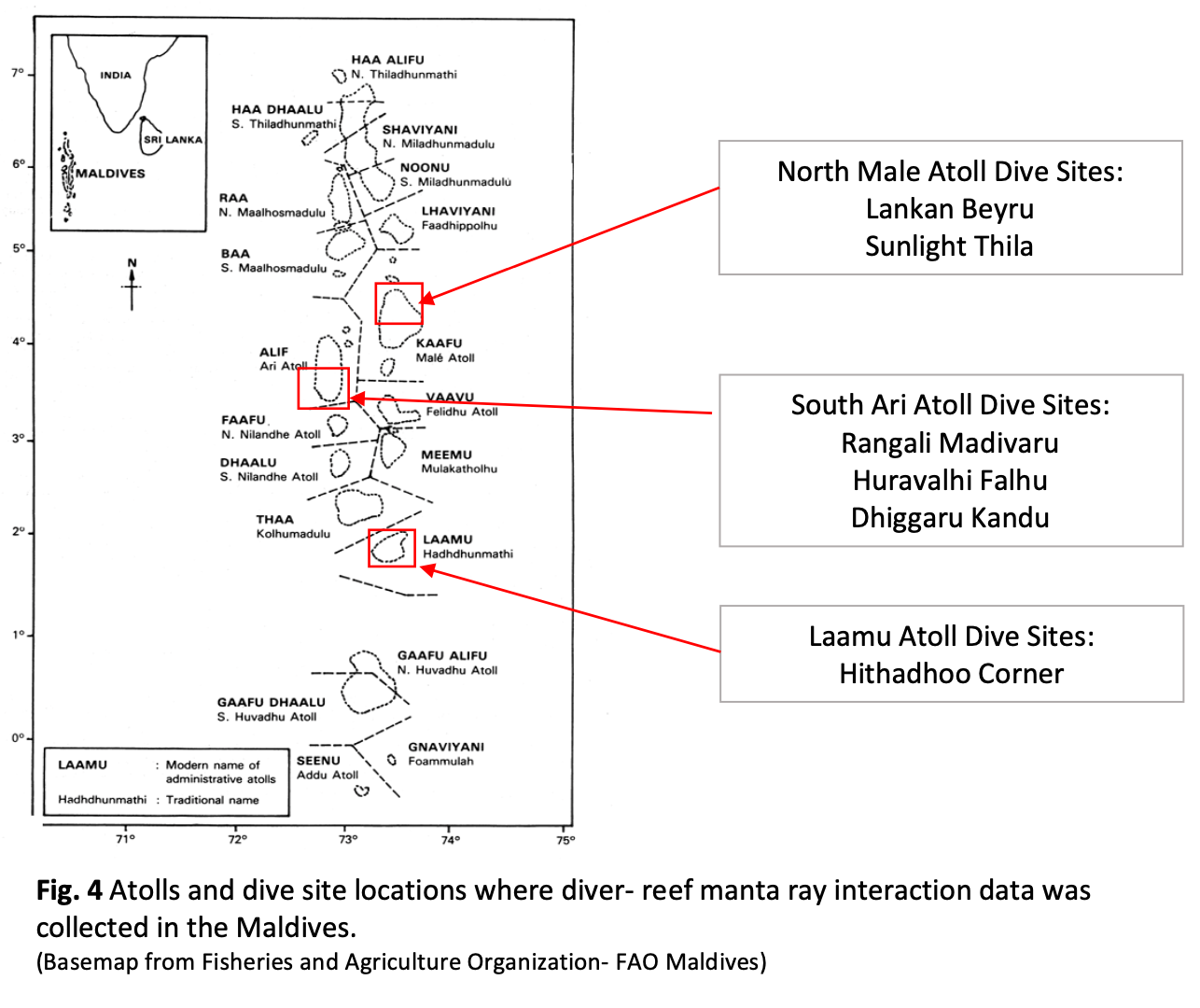
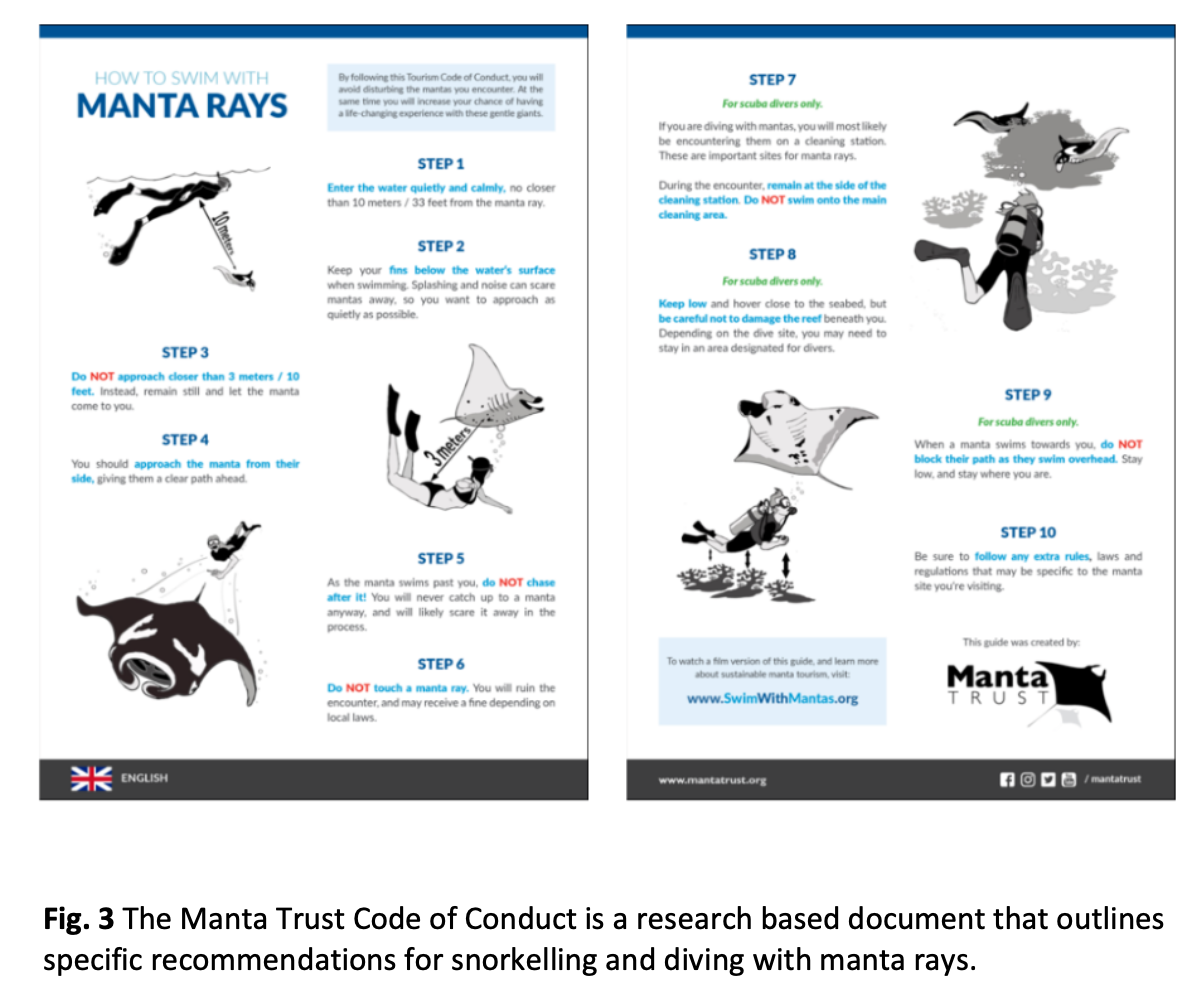
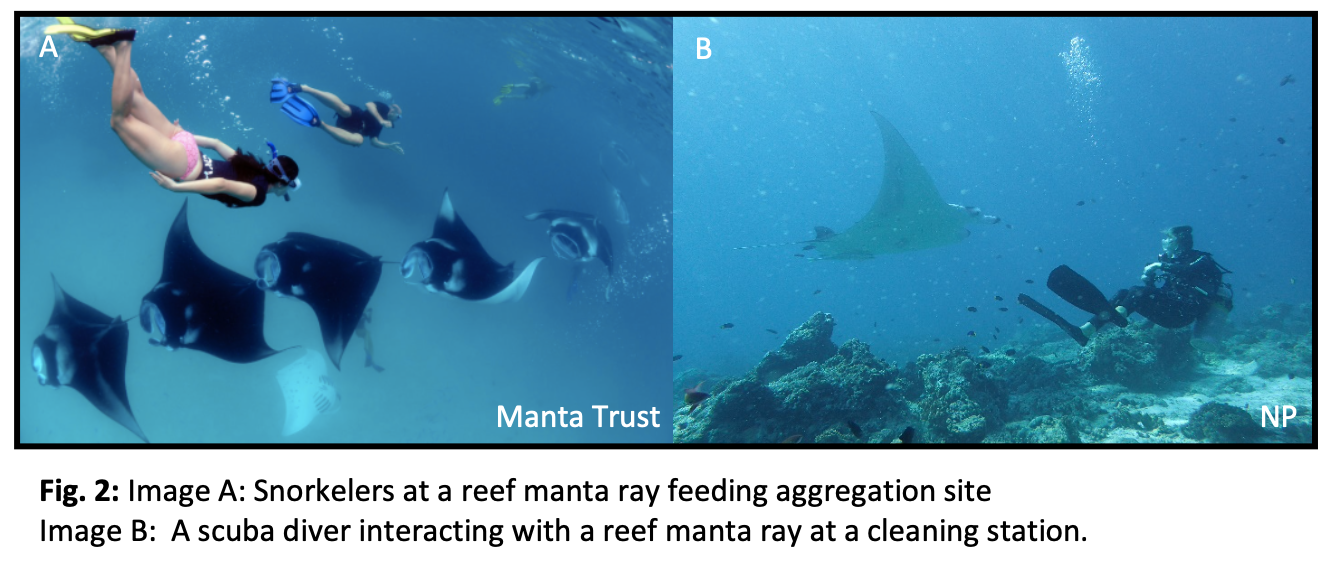
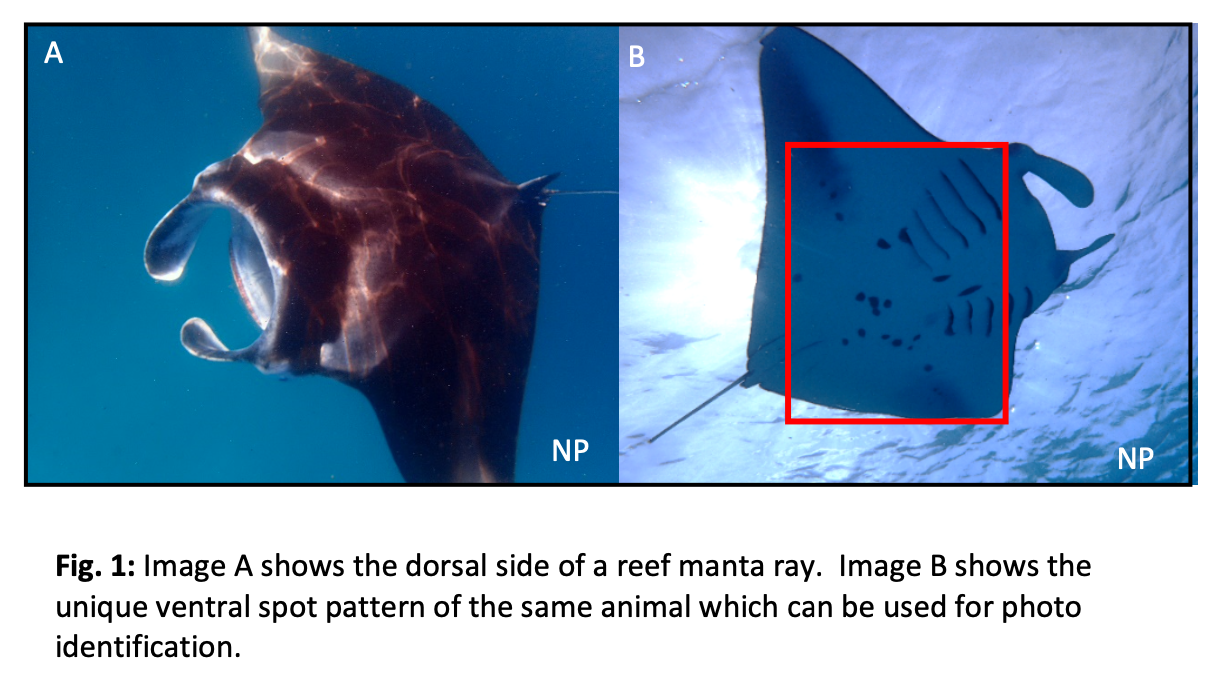
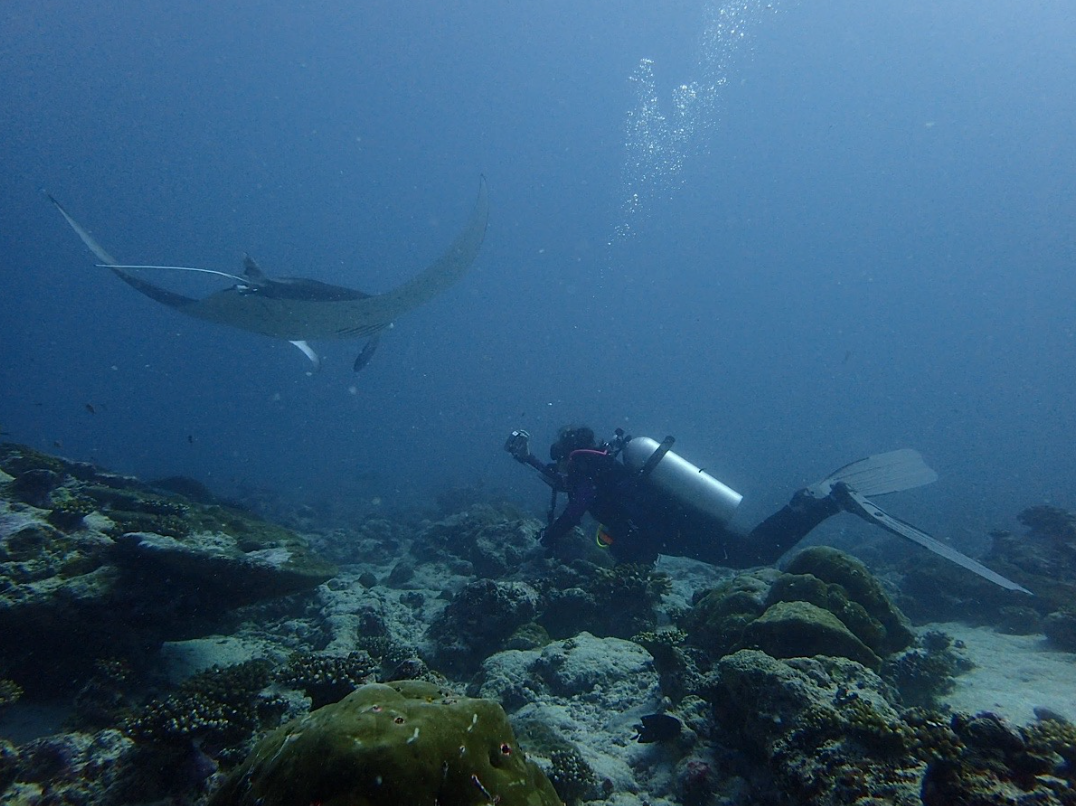
Summary: Reef manta rays (Mobula alfredi) face threats from fishing and unsustainable tourism, but research on the behavioural impacts of tourist encounters is lacking. To manage tourism and protect the rays, understanding their behaviour is crucial. The Manta Trust developed a code of conduct based on research, but knowledge on scuba diver-manta interactions is limited. This study analyzed video footage from cleaning stations in the Maldives to assess the effectiveness of guidelines. Scuba divers had minimal impact when maintaining a distance of over three meters and staying off cleaning stations. Dive guides should share the code of conduct to minimize disturbance. Long-term impacts on cleaning station habitats require further investigation.
Abstract
“Reef manta rays (Mobula alfredi) are a vulnerable species threatened by targeted and bycatch fishing, as well as unsustainable tourism. Marine tourism is often promoted as a sustainable use of manta rays as a resource; however, minimal research has been conducted on behavioural impacts to manta rays from tourist encounters. To effectively manage tourism practices and minimize disturbance to manta rays, potential impacts on manta ray behaviour must be researched and understood. The Manta Trust, a non-profit organization, developed a code of conduct for scuba diving and snorkelling based on quantifiable research to promote responsible tourism; however, research on scuba diver- manta interactions remains limited. This study aimed to increase available knowledge on scuba diving with reef manta rays through behavioural analysis of video footage from cleaning stations across the Maldives and to determine if the current recommended guidelines are effective at minimizing disturbance by scuba divers. Overall, scuba divers were found to have a minimal impact on reef manta rays at cleaning stations. The main predictors of divers invoking no response from reef manta rays were maintaining a distance greater than three meters from the manta and maintaining a position off of reef cleaning stations. Dive guides can play an essential role in minimizing disturbance to manta rays by sharing the code of conduct recommendations and ensuring that divers follow the guidelines. While immediate disturbance to manta ray behaviour was minimal, this study highlighted the need for research on long term diver impacts to cleaning station habitats.”
Author Affiliations
University of York
The Manta Trust
